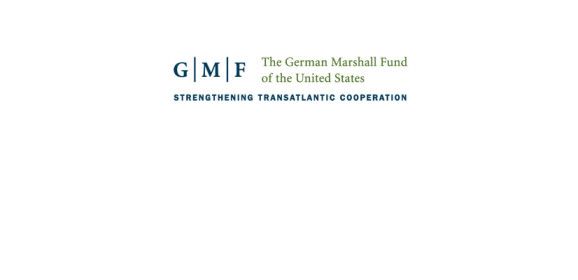Section: The German Marshall Fund of the United States (USA)
Italian Foreign Policy: The More Things Change, The More They Stay The Same.
For a long time, Italy struggled with a fundamental discrepancy between its ambition to be considered one of the great powers of Europe and its quite meager capabilities. Victory in World War I seemed for a brief time to give it status as a major player, but fascism proved to be the ultimate example of the tragic contradiction between goals and...
European Disunion and America First
In her annual State of Transatlantic Relations call, President of The German Marshall Fund of the United States (GMF) Dr. Karen Donfried presented her view of how things stand in the different aspects of the relationship between the United States and Europe. This included her assessment of where developing trends may lead in 2019, and how GMF can...
Beyond Elections’ Digital Propaganda: Need for Improvement of Public Debates
In AICGS’ new report “Defending Democracy in the Cybersphere,” Nad’a Kovalcikova calls for strengthening public debate in the face of ongoing digital propaganda. Since the beginning of the twenty-first century, we have been increasingly facing non-military threats, including digital disinformation campaigns, which have a world-wide...
The Agreement Over Macedonia’s Name Is a Glimmer of Hope in Europe
Greece and Macedonia have just scored a victory for democracy, stability, and their future economic prosperity in Europe. Today, the latter took a leap forward by signing its accession protocol with NATO, strengthening its security and place in the Euro-Atlantic community. Following Montenegro’s hard-won accession to NATO in 2017, the two...
Hungary and Poland: What Next for Europe’s “Illiberal Vanguard”?
Transatlantic TakeIn 2019, the European Union could face its most serious trials yet. At the May elections to the European Parliament, a stronger-than-ever showing is expected of political forces that oppose a politically integrated Europe of liberal democracies. Among those illiberals and Euroskeptics, the ruling parties of Hungary and Poland...
Elections in 2019: Risks of More Interference
The past year was a turbulent one for democracy in the transatlantic space. A rising tide of populism, nationalism, extremism, and illiberalism continued to upend politics. This affected elections in countries like Italy, where the ruling coalition is now made up of a far-right party and its anti-establishment ally, and Sweden, where the...
Warsaw’s Risky Flirtation With Washington
Michal Baranowski stands in front of a white-grey world map in his conference room and explains what the state of mind is in Poland: Fear. The head of the Warsaw office of the U.S. foundation German Marshall Fund (GMF) is an outstanding expert in Polish-American relations and has a broad network. “The economy, increasingly the energy...
What to Watch in 2019
One year ago people were expecting 2018 to be a second “year of the woman” – the first having followed Anita Hill’s sexual harassment allegations against Clarence Thomas during his U.S. Supreme Court confirmation hearings in 1991. On this account 2018 met expectations. The momentum of the #metoo movement continued to build in 2018 and it...
In Ukraine It’s Not Merely About Ukraine—Which Is Why the West Must Respond
Russia’s actions in Ukraine fit into a larger pattern of aggression. The West needs to push back. Russia’s military actions against Ukraine in and around the Azov Sea have triggered more than a week now of reaction. Both the UN Security Council and the NATO-Ukraine Commission convened emergency sessions. NATO member states issued...
Why the United States Needs a Cohesive NATO
If a conflict with China arises, the United States will need a strong, cohesive NATO, as well as other partnerships around the world to maintain order and security in Europe’s neighborhood, and perhaps even beyond. The United States remains committed to Europe’s security and stability. But it also expects its European allies to pick...



